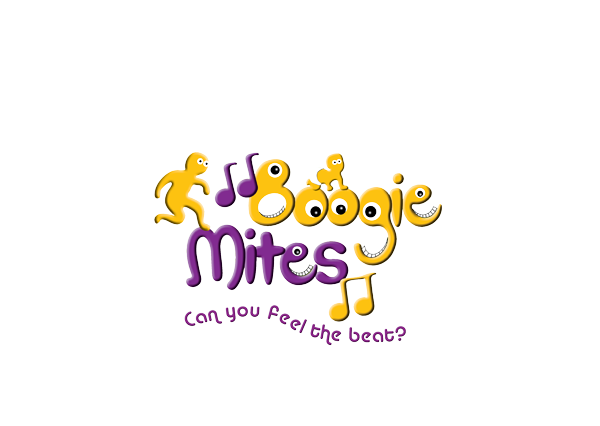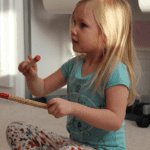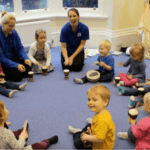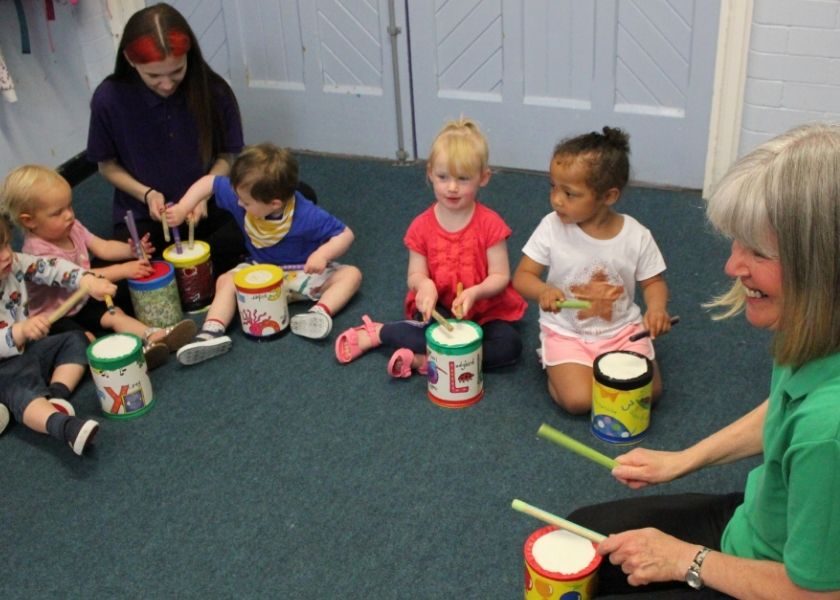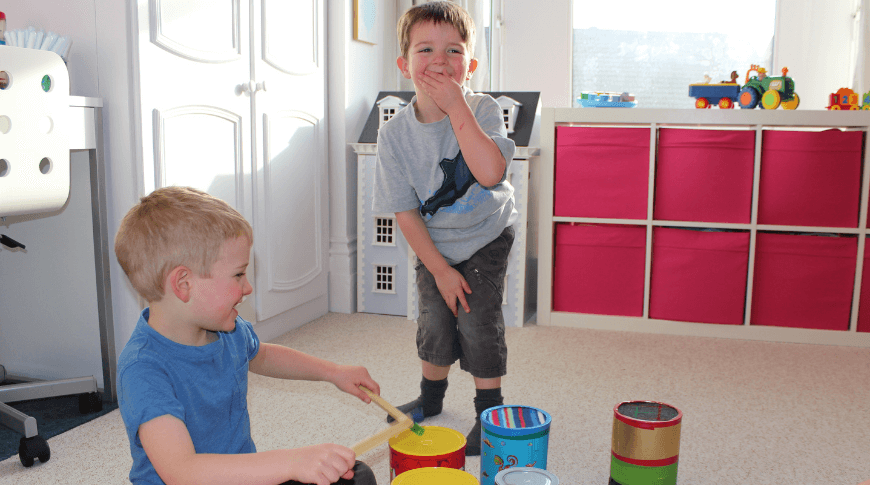
Parent involvement in home practise of music activities can boost school ready literacy and maths skills. Regular music practice in early years will develop auditory processing ready for phonics, reading, writing as well as developing spatial awareness and sequencing skills that provide a strong foundation for maths.
What does the evidence show?
MUSIC TO SUPPORT FOUNDATIONS FOR LITERACY IN EARLY YEARS
– Evidence shows that children with a strong phonological awareness, when they start school, will be the strongest readers and writers by age 7-8. Phonological awareness consists of; syllables, onset rime and phoneme awareness.
– Music training, by definition, results in developing higher awareness of sounds. Regular involvement in music activities will develop the awareness of syllables, onset rime and phoneme awareness. Music activities are more engaging than phonics exercises so children will be more attentive and motivated to take part.
– Words and sentences have an intrinsic rhythm. Children can develop an awareness of this by developing their sound processing skills and playing with syllables of words through music activities.
– Songs and rhymes have deliberate patterning so are extremely useful in developing the sound processing of stressed syllables – an area which is found to be weak in children who suffer with dyslexia.
MUSIC TO SUPPORT FOUNDATIONS FOR MATHS IN EARLY YEARS
– Music is built from recurring mathematical patterns and sequences such as beat, tempo and rhythm. Children can develop mathematical thinking as they notice and respond to this.
– A sense of pattern supports children’s learning, enabling them to make links and notice connections between events and ideas, promoting thought and the capacity to learn. Indeed music training has been found by neuroscientists to increase cognitive function significantly – measured by an increase in IQ.
– If, as mathematicians suggest, maths is the science of pattern, it is clear that music and dance are the art of pattern.
– Early exploration of movement and sound, combined with the brain’s drive for pattern, lead to recognition of regularities that can be identified – ordering, classifying, sequencing and predicting – supporting foundations for maths.
Children develop an interest in things they think we are interested in, so we need to demonstrate an interest in sounds all around us, to support their exploration of sounds.
Step 1 – developing our own confidence to lead creative music activities and play with sounds alongside children.
Step 2 – value music-making and sound patterning activities and understand their relevance in building strong foundations for literacy and maths learning and development.
Evidence shows that regular music practice in early years can develop these neural connections better than any other activity.
We also know from neuroscience studies that it is the regular repetition of these music activities that has the most effective impact. So, it follows that practise at home can provide an even greater support for the development of strong foundations ready for school.
Many pre-schools across the UK follow Boogie Mites School Ready Literacy and/or Maths Music Programmes. They see how the regular music sessions boost listening skills, engagement, confidence as well as the development of music skills, rhythmic and melodic awareness which provides strong sequencing, patterning and auditory processing foundations for literacy and maths.
BOOGIE MITES SCHOOL READY DIGITAL RESOURCE FOR HOME USE
During lockdown, Boogie Mites created workshop videos for children to enjoy at home with their families and these have been added to the digital programme resources for home use.
Why not enjoy the magic of music at home with your children, to ensure they get the repetition to maximise the potential benefits (and because it’s fun!)
School Ready Literacy Parent Pack
School Ready Maths Parent Pack
The bonus is: Boogie Mites songs are enjoyed as much by adults as by children and they provide a fun way to learn together, bond and create memories at this vital stage before school.
We also have a parent page, Boogie Mites Music Club, which you can follow for more information.
Happy boogie-ing!
